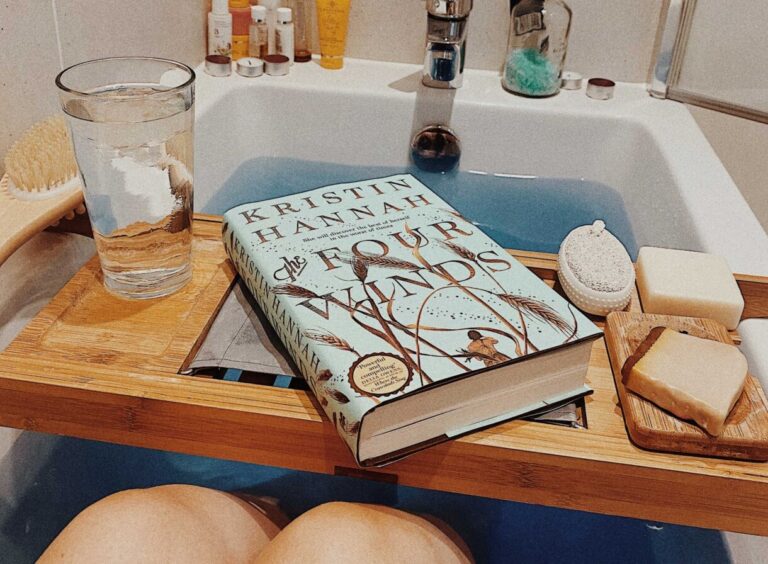‘Right, darling, yes I’m sure you are. What time is it?’ Franny shrugged.
Never mind the mist and the cold, they would take Larry for a walk down to the sea.
Franny looked up at her with reproach. ‘I’m hungry.’
As Malorie reads Rosemary’s diary, past and present begin to merge in this moving story of mothers and daughters, family obligation and deeply buried secrets.
On the right of the hallway as she came down the stairs was the living room, on the left, an empty room. The door to the living room was ajar and inside she found Franny curled up on a tatty old sofa, swaddled in blankets, reading a book, with Larry at her feet.
‘I might go to Norfolk for Christmas,’ she’d said. He hadn’t cared. He’d stopped listening to her years before. He’d care now, she thought.
‘Mummy?’
The kitchen was at the back of the house, cold on the flagstone floor, even through her socks and slippers. The clock on the wall said nine o’clock. Time stretched and warped here: she had somehow slept in. Larry followed her through, whining, and she opened the back door to let him out. The air was heavy and damp with the mist. At the threshold, the little dog bristled and hesitated, uncertain about the grey-shrouded garden, but Malorie gave him a shove with her foot. Outside, he began to bark. He seemed to be barking at the hedge and while she was looking at it, something dark slunk along the bottom. She caught a glimpse of a long tail – a rat – and shuddered. She doubted Larry would do much about it but she shooed him further out into the garden anyway, relieved that he was here.
From downstairs came the sound of Franny crooning to her dog. Her poor, lonely girl. It had been Tony’s idea to buy Franny a pet, and Malorie, unused to animals, had resisted. But now she was glad. The little dog was the only being Franny warmed to. Malorie had a memory of her daughter thrashing in her sleep but wasn’t sure if she’d dreamed it. She should try to find some friends for her. There must be village children. But she already knew this was hopeless – the idea of her silent little girl making friends with anyone was laughable. At the school in London they said she was ‘shy’ and ‘well behaved’. She ‘keeps herself to herself’. She’d felt as if their eyes contained a rebuke for not producing a happy, carefree child, for leaving Franny without siblings; their mouths set hard against her as a parent, that her daughter was strange and it was her fault. Tony told her she was being ridiculous; no one thought that. But she didn’t trust anything he said to her.
Today I have an extract from the book to share with you.
‘Mummy,’ she said, ‘what about a Christmas tree? We have to get a tree. Daddy would get me a tree.’ In London, they had a small fake tree that Tony had bought in Harrods. It had been stupidly expensive but Franny loved it. Malorie knew his family had always had huge, real trees but he said they couldn’t fit one into their little flat so this was the next best thing. Her parents, in their Norwich suburb, had always thought the tree they’d bought from Woolworths was perfectly good enough, thank you. Malorie had always wanted a real one. It was part of her vision of a perfect life. In her childhood books, children gathered around a towering, glittering tree. She somehow felt that if she could achieve this image – of them sat round the Christmas fir in their dressing gowns, the children’s stockings over the fire – then she would have created something good. For this vision, she had to have a real tree. That was it: she could cut one down. There were loads of firs along the edge of the property. No one would notice if she chopped down a baby one.

December, 1962. Desperate to create a happy Christmas for her young daughter, Franny, after a disastrous year, Malorie rents a remote house on the Norfolk coast. But once there, the strained silence between them feels louder than ever. As Malorie digs for decorations in the attic, she comes across the notebooks of the teenaged Rosemary, who lived in the house thirty years before. Trapped inside by a blizzard, and with long days and nights ahead of her, Malorie begins to read. Though she knows she needs to focus on the present, she finds herself inexorably drawn into the past…
She dressed quickly in the freezing room, thinking of how they’d need food supplies and coal for the fire and how she should have thought of all of this before she’d piled them into the car in London. On the landing she hesitated. There was something about the night that she only half remembered. She looked into the pink bedroom but neither Franny nor the dog were there. Above the bed, the odd sampler. There was the severe woman, there was the old lady with the fierce-looking dog and there was the little girl with the plaits holding a book. Malorie’s head hurt. She squeezed her eyes shut. It was just a creepy old picture. She needed a cup of tea.
Through the ice-crusted window, Malorie could see there was nothing but a thick grey mist. She pressed her forehead against the pane and closed her eyes. Her throat was sore and at the back of her head was a dull ache. She must not succumb to despair. After scraping at the ice on the window with her fingernails, she wiped a patch of condensation with the sleeve of her dressing gown and peered through the smear of wet droplets. Across the lane from the house and sunk in the mist, there were the shadows of trees, but apart from that it seemed deserted. Around the edge of the garden, the black arms of bare trees and a dark clump of firs. The mist merged with a dull sky and nothing else was visible. She’d imagined flinging open the window onto a sparkling view of the sea but it might as well not have been there. She cranked open the old window and sniffed the air. Yes, the sea was near all right. There was a faint tang of salt and a wet smell of damp earth and something else sharp that she couldn’t name. Opening her mouth she tried to suck it in and swallowed a mouthful of moisture and seasalt. A low black shape moved in the distance along the lane. Was it the dog she’d heard last night? A taller figure moved behind the animal. A brown, stout person in some kind of hat. She wanted to call out but a gust of wind slammed the window shut and she jumped back. It only just missed smacking into her nose. When she looked again, the figure and the animal were gone.
22nd December
Zoe Somerville’s latest novel, The Marsh House, was published by Head of Zeus on 3 March 2022.
Back in the living room, with two more mugs of black tea and toast with jam but no butter (‘I’ll buy some today, Franny, I promise’), she remembered the lack of a fire. She swallowed down the sob rising in her throat and washed down the bitter tea with a mouthful of strawberry jam.
July, 1931. Rosemary lives in the Marsh House with her austere father, surrounded by unspoken truths and rumours. So when the glamorous Lafferty family moves to the village, she succumbs easily to their charm. Dazzled by the beautiful Hilda and her dashing brother, Franklin, Rosemary fails to see the danger that lurks beneath their bright façades…
About the Book
‘I’ll get you a tree,’ she said, smiling.
blackness cascading through her head. She would not take a pill. She would not. The window banged and she started. She hadn’t put the catch back on.
She tried to picture his face when he found the flat empty and his daughter gone. It gave her a nasty bubble of pleasure. He would mind about Franny. Well, sod him. She saw him revving the engine of his Austin and speeding off back to the flat above the club. And the curvaceous body of Barbara. He would call her Babs, the way he called her Mal. Babs’s beautiful body. She put her hands to her forehead and squeezed. This was no good. She shouldn’t think about it.
And she was here now, wasn’t she? She’d done it. Got out of London. Away from him and his blatant lies, from the empty flat and the pills. It wasn’t at all how she’d imagined, but nothing was. Not her marriage, motherhood, her work (what work? There was no work. All her secretarial contacts had faded away since Franny). Her parents, both now dead. Her daughter. All of it had ended up somehow wrong. Defective. Broken. She drove her nails into her palms to staunch the flow of inky
The argument repeated itself. Another child, another baby. But she’d been ill, she couldn’t cope, her father died. There was always something. And then, she began to suspect he was sleeping with other women. She had withdrawn even further into her private hurt. It was too late now.







